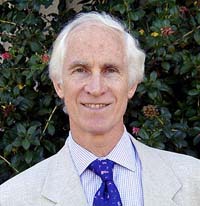[An edited version of this lecture is available in the IHJ Bulletin, Vol.29, No.1, 2009.]
- Speaker: T. J. Pempel, Director, Institute of East Asian Studies,
- University of California, Berkeley
- Moderator: Susumu Yamakage, Professor, Graduate School of Arts & Sciences,
- University of Tokyo
- Date & Time: Friday, October 17, 2008, 7:00 pm
- Venue: Iwasaki Koyata Memorial Hall, International House of Japan
- Admission: 1,500 yen (Students: 1,000 yen, IHJ Members: Free)
- Language: English/Japanese (with simultaneous translation)
Japanese policymakers have in the postwar period rather consistently structured their nation’s foreign policies with an eye toward Washington’s preferences and changing priorities. America’s heightened focus on military relations during the Bush administration found a welcome partner in Prime Minister Koizumi who shifted a number of Japanese policies to strengthen bilateral military ties with the United States. Asia has also loomed large in official Japanese thinking, spurred by geographical proximity and the combination of security challenges and economic potential provided by Japan’s Asian neighbors. Negative bilateral relations with both China and Korea for the first five years of this century have, however, recently been replaced by a warmer climate through visits by top officials and a mutual embrace of Asian regionalism. Where does this leave ties between Japan and Europe? For most of the postwar period neither governments nor mass publics in either Japan or Europe have given much attention to the other. Yet, Japan-Europe linkages have been deepening of late as each side begins to realize the potential benefits of closer ties with one another, particularly on non-security issues such as global warming, bans on land mines, the International Criminal Court and other issues. In this lecture, Professor Pempel will address the ongoing tradeoffs Japan faces in balancing out these three often competing relationships.
T. J. Pempel

- With a Ph. D. from Columbia University, Prof. T. J. Pempel is an internationally acclaimed political scientist on Asian studies. Prior to occupying his current position, he was at the University of Washington in Seattle and Director of the East Asia Program at Cornell University. The main focus of his research interest is on comparative politics, political economy, contemporary Japan, and Asian regionalism. As well as being engaged in the study of U.S. foreign policy and Asian regionalism, he serves on various committees of the American Political Science Association, the Association for Asian Studies and the Social Science Research Council to promote interdisciplinary policy-oriented research project. His major publications include Uncommon Democracies: The One-Party Dominant Regimes (Cornell University Press, 1990), Beyond Bilateralism: U.S.-Japan Relations in the New Asia-Pacific (Stanford University Press, 2003), and Remapping East Asia: The Construction of a Region (Cornell University Press, 2004).